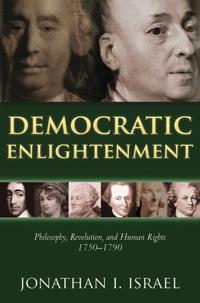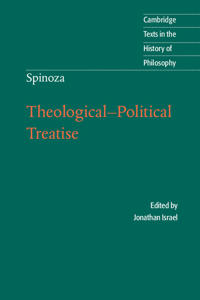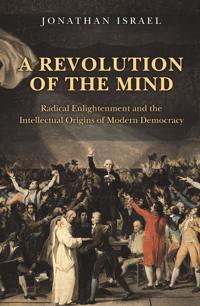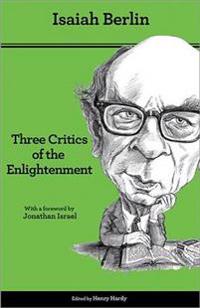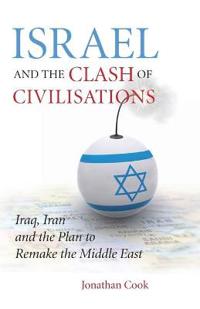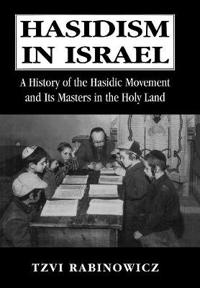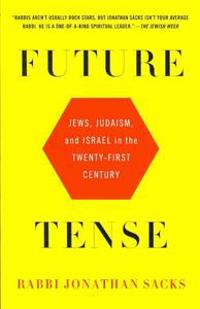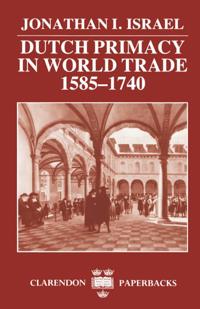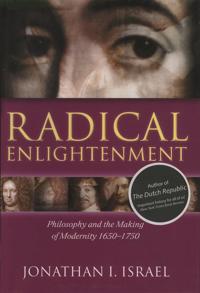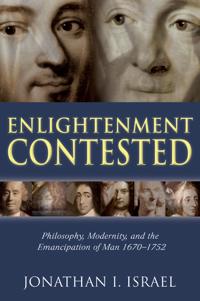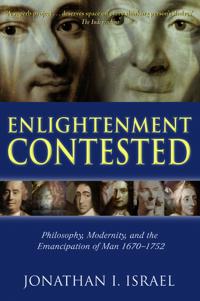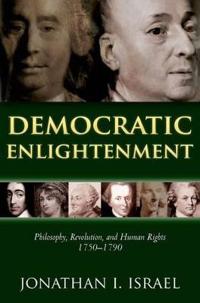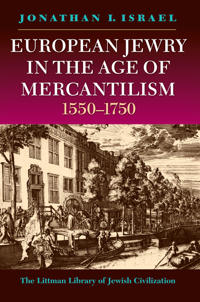Democratic Enlightenment (Häftad)
avJonathan Israel
ISBN: 9780199668090 - UTGIVEN: 201301The Enlightenment shaped modernity. Western values of representative democracy and basic human rights, gender and racial equality, individual liberty, and freedom of expression and the press, form an interlocking system that derives directly from the Enlightenment's philosophical revolution. This fa[...]
Theological-Political Treatise (Pocket)
avBenedictus de Spinoza, Jonathan Israel, Michael Silverthorne
ISBN: 9780521530972 - UTGIVEN: 200705Spinoza's Theological-Political Treatise (1670) is one of the most important philosophical works of the early modern period. In it Spinoza discusses at length the historical circumstances of the composition and transmission of the Bible, demonstrating the fallibility of both its authors and its inte[...]
A Revolution of the Mind (Häftad)
avJonathan Israel
ISBN: 9780691152608 - UTGIVEN: 201109Democracy, free thought and expression, religious tolerance, individual liberty, political self-determination of people, sexual and racial equality - these values have firmly entered the mainstream in the decades since they were enshrined in the 1948 U.N. Declaration of Human Rights. But if these id[...]
Three Critics of the Enlightenment: Vico, Hamann, Herder (Häftad)
avIsaiah Berlin, Henry Hardy, Jonathan Israel
ISBN: 9780691157658 - UTGIVEN: 2013-11Isaiah Berlin was deeply admired during his life, but his full contribution was perhaps underestimated because of his preference for the long essay form. The efforts of Henry Hardy to edit Berlin's work and reintroduce it to a broad, eager readership have gone far to remedy this. Now, Princeton is p[...]
Israel and the Clash of Civilisations (Pocket)
avJonathan Cook
ISBN: 9780745327549 - UTGIVEN: 2008-02Journalist Jonathan Cook explores Israel's key role in persuading the Bush administration to invade Iraq, as part of a plan to remake the Middle East, and their joint determination to isolate Iran and prevent it from acquiring nuclear weapons that might rival Israel's own.*BR* *BR*This concise and c[...]
Hasidism in Israel (Inbunden)
avTzvi Rabinowicz, Jonathan (FRW) Sacks, Tzvi Rabinowicz
ISBN: 9780765760685 - UTGIVEN: 2000-11The movement was Hasidism, the cataclysmic force that wiped away the narrow intellectualism that had estranged the Jewish masses from their heritage. Hasidism focused upon fundamental Judaism, on sublimely simple principles that stressed the joy of life, love of man, and sincerity in word and deed, [...]
Future Tense: Jews, Judaism, and Israel in the Twenty-First Century (Häftad)
avJonathan Sacks
ISBN: 9780805212297 - UTGIVEN: 201208We are in danger, says Rabbi Sacks, of forgetting what Judaism's place is within the global project of humankind. The Jewish people exist for a reason, and it is not for themselves alone. They must recommit themselves to their foundational purpose: to the task of creating a just world in which the d[...]
The Dutch Republic (Pocket)
avJonathan I. Israel
ISBN: 9780198207344 - UTGIVEN: 1998-06-04The Dutch Golden Age was one of the most spectacularly creative episodes in world history. The age of Grotius, Spinoza, Rembrandt, and Vermeer, it was also remarkable for its immense impact in the spheres of commerce, finance, shipping, and technology. This book provides a comprehensive account of t[...]
Dutch Primacy in World Trade, 1585-1740 (Häftad)
avJonathan I. Israel
ISBN: 9780198211396 - UTGIVEN: 1990-07Despite its small size and population, the Dutch Republic functioned as the hub of world trade, shipping, and finance for nearly two centuries. This is the first detailed account of that hegemony from its sixteenth-century origins to the final collapse of the Dutch trading system in the eighteenth c[...]
Radical Enlightenment (Häftad)
avJonathan I. Israel
ISBN: 9780199254569 - UTGIVEN: 200207Arguably the most decisive shift in the history of ideas in modern times was the complete demolition during the late seventeenth and eighteenth centuries - in the wake of the Scientific Revolution - of traditional structures of authority, scientific thought, and belief, by the new philosophy and the[...]
Enlightenment Contested (Inbunden)
avJonathan Irvine Israel
ISBN: 9780199279227 - UTGIVEN: 2006-11Jonathan Israel presents the first major reassessment of the Western Enlightenment for a generation. Continuing the story he began in the best-selling Radical Enlightenment, and now focusing his attention on the first half of the eighteenth century, he returns to the original sources to offer a grou[...]
Enlightenment Contested (Häftad)
avJonathan I. Israel
ISBN: 9780199541522 - UTGIVEN: 200811Jonathan Israel presents the first major reassessment of the Western Enlightenment for a generation. Continuing the story he began in the best-selling Radical Enlightenment , and now focusing his attention on the first half of the eighteenth century, he returns to the original sources to offer a gro[...]
Democratic Enlightenment (Inbunden)
avJonathan I. Israel
ISBN: 9780199548200 - UTGIVEN: 201109The Enlightenment shaped modernity. Western values of representative democracy and basic human rights, gender and racial equality, individual liberty, and freedom of expression and the press, form an interlocking system that derives directly from the Enlightenment's philosophical revolution. This fa[...]
European Jewry in the Age of Mercantilism, 1550-1750 (Häftad)
avJonathan I. Israel
ISBN: 9781874774426 - UTGIVEN: 199711This survey history of Jewish life and culture in early modern Europe is the first to focus on the sixteenth and seventeenth centuries as a radically new phase in Jewish history. The book lays particular emphasis on the reversal of trends in western and central Europe in the late sixteenth century, [...]

